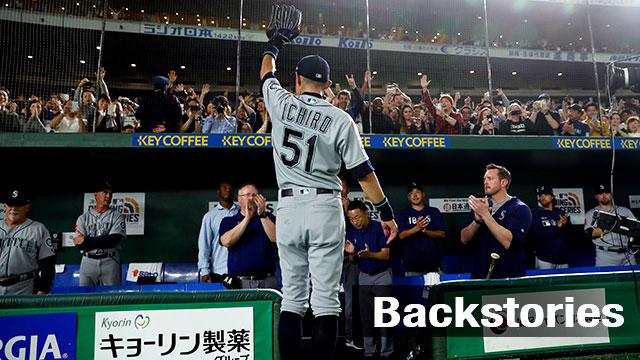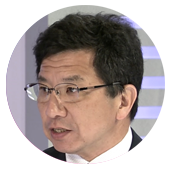There were voices of doubt from American media and baseball fans about his ability to compete in the Major League. But they were silenced right off the bat, as Ichiro showed remarkable skill.
Ichiro, as a major leaguer, made me change both my approach and base as a sports reporter. Being able to cover him from shortly after his MLB debut was a hugely valuable experience that I am truly grateful for.
An elusive star
Ichiro joined Major League Baseball at the beginning of the 2001 season. Right from his debut, he gave a spectacular performance, and it was actively covered by the media.
Back then, I was in charge of covering Japanese professional baseball. But in July 2001, my boss ordered me to make an extended business trip to the United States to report on Ichiro.
The trip was about five months long, until the end of the 2001 season. It was the first time for me to go on such a long business trip. Although I had covered major league games several times before, all of my previous trips were quite short.
After arriving in Seattle, I found that lots of newspapers and wire services were eager to cover the Seattle Mariners. I remember that there were as many as 50 reporters at each game during Ichiro's first year there.
The MLB allows reporters to enter its players' locker rooms for a certain period of time before and after a game so that reporters can interview its players.
After a game, the reporters first go to the managers' rooms to listen to what they have to say about the game that has just ended. They then move on to the locker rooms.
It was very difficult to interview Ichiro in the locker room. Management may have taken steps to prevent trouble, as there was always a big crowd of Japanese reporters which could get in the way of the local media.
Strict with media
During Ichiro's debut season, it was extremely difficult to get comments from Ichiro on video.
We tried to get his voice wherever we could. Sometimes, it would be in front of his locker room, and other times, it would be in the interview room at the ballpark. The location varied, but one thing never changed -- the tension that continued throughout the interview.
Ichiro listened very carefully to our questions. When he didn't fully understand what we meant, he would ask us to repeat it.
What's more, he was and is still quite strict about questions he is asked. At the news conference announcing his retirement earlier this month, for example, he said such things as, "Is that question necessary?" and "I don't think it'd look very cool if I explained it in detail."
I was one of the reporters at the news conference. I made a huge effort to prepare my questions beforehand with the best wording, using all of my knowledge. I believed there was only a one-in-a-million chance to get his true thoughts and feelings on video.
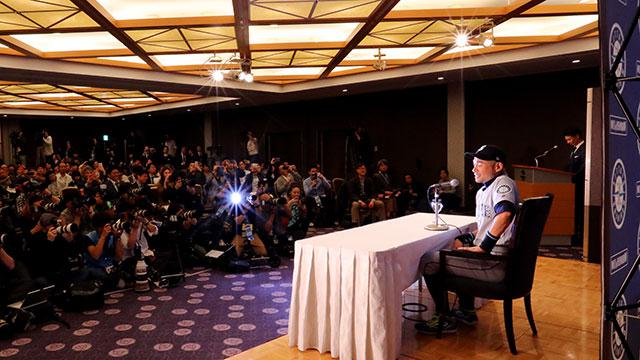
Trained by Ichiro
For interviews at the end of the season, we were most interested in how Ichiro assessed his standings. But we couldn't just comment about him achieving 200 hits every season. Since baseball is a team sport, we also had to gather information about the team and Ichiro's position and role within it. Because of this, we had to extract a lot of information from him in a limited time.
Ever since being assigned to Ichiro, I have had many opportunities to cover and interview other athletes. It is to no small degree that I owe this to the training I received from Ichiro's press conferences.
Early-dawn conference
On the early morning of March 22nd, Ichiro held a news conference announcing his retirement. I think the viewers who realized how carefully the reporters were choosing the wording of their questions can imagine the tension in the room. The conference lasted nearly 90 minutes despite being held at early dawn. I felt that his attitude and careful responses to all of the questions, despite being exhausted from his game, was Ichiro's way of showing his appreciation to Japanese fans,
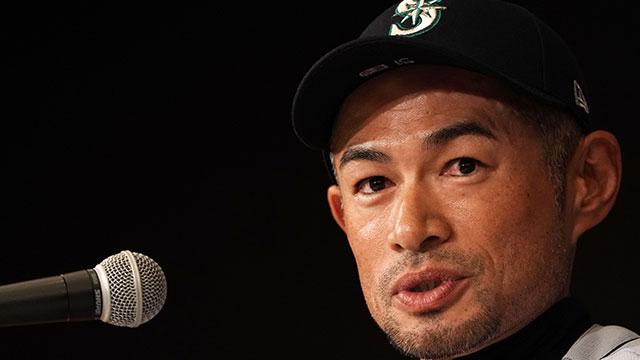
NHK creates Seattle bureau to cover Ichiro
Ichiro won numerous awards in 2001, becoming batting champion, stolen base champion, Rookie of the Year and MVP. In the following year, NHK set up a branch office in Seattle. It is no exaggeration to say the office was established for Ichiro. We attracted attention with our successive news coverage of Ichiro's success and other Japanese MLB players.
Other Japanese TV stations and newspapers dispatched special correspondents or reporters to cover the Seattle Mariners' games held throughout the US. We would take an airplane once every three days to report on their away games.
Sports reporting has not changed much since then, even with the emergence of other Japanese MLB players including Hideki Matsui, Kazuo Matsui, Masahiro Tanaka and Shohei Otani. It was Ichiro who contributed to the creation of branch offices and the MLB reporting style.
Ichiro's last day
This February, I went to Arizona for a vacation to see the Seattle Mariners' spring training camp. It was my first time in 12 years to see a live spring training game, and Ichiro was in the starting lineup. Fans roared over Ichiro's RBI hit, even though it wasn't his best. Ichiro managed just one more hit after this game.
In the two opening series games in Japan, Ichiro ended hitless and put his bat down.
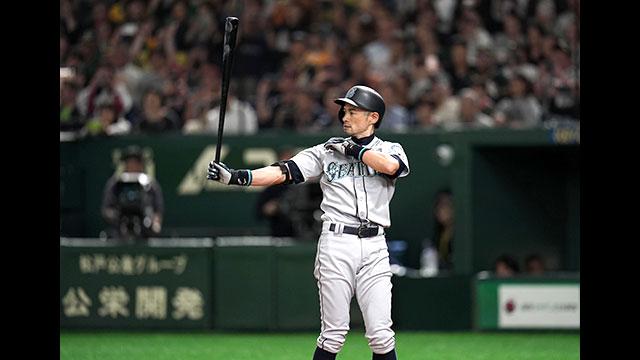
While I knew this day would come, I became emotional about its arrival. Ichiro was taken out of the game, but fans continued to cheer while he walked off the field. He then embraced his teammates. It was time for the historic major leaguer, to leave.
